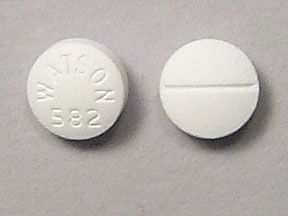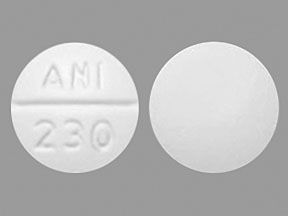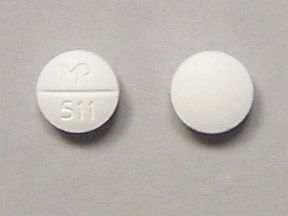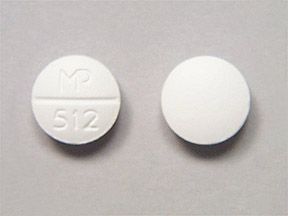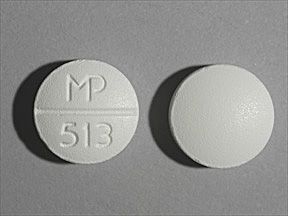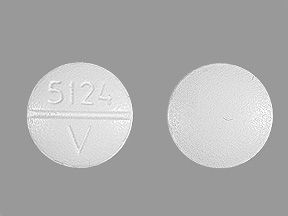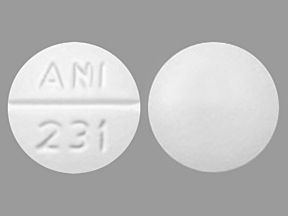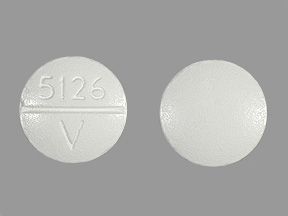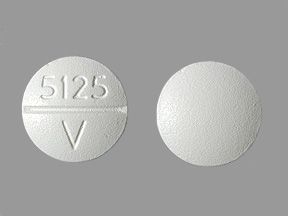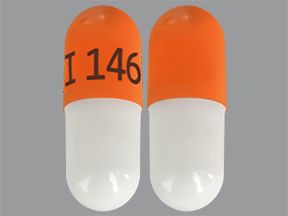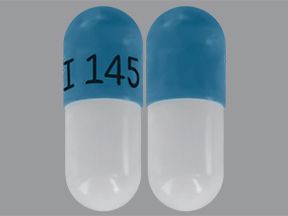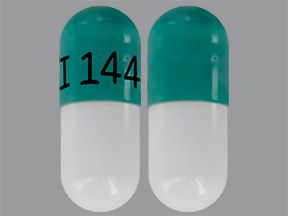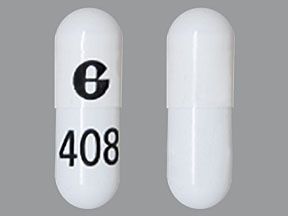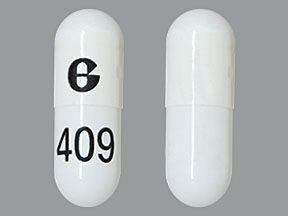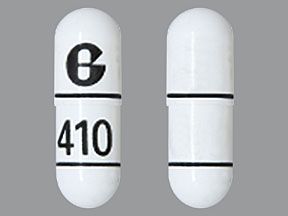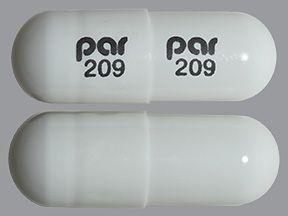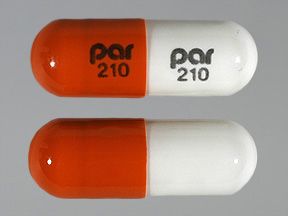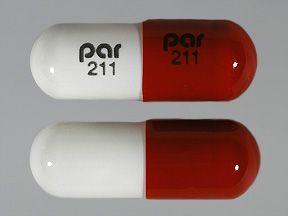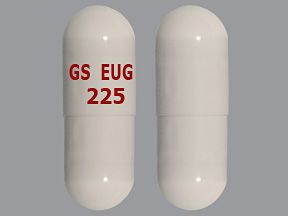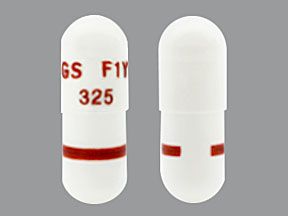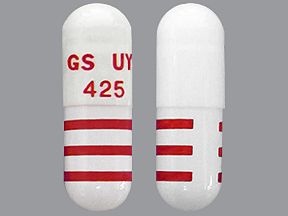This drug has a boxed warning. This is the most serious warning from the Food and Drug Administration (FDA). A boxed warning alerts doctors and patients about drug effects that may be dangerous.
- Propafenone should only be used to treat life-threatening abnormal heart rates. This drug, like many other medications that treat irregular heart rate, can increase your risk of death. Your risk may be higher if you have structural heart disease.
- Propafenone oral tablet is only available in a generic version. It doesn’t have a brand-name version.
- Propafenone comes as a tablet you take by mouth. It also comes as an extended-release capsule you take by mouth.
- Propafenone oral tablet is used to treat and prevent irregular heart rhythms. It’s prescribed for people with atrial fibrillation or flutter, ventricular arrhythmias, or paroxysmal supraventricular tachycardia.
Propafenone is a prescription drug. It comes as an oral tablet and an oral extended-release capsule.
Propafenone oral tablet is available only as a generic drug. Generic drugs usually cost less than brand-name drugs.
Why it’s used
Propafenone oral tablet is used to treat and prevent irregular heart rhythms. It’s prescribed for people with:
- atrial fibrillation
- atrial flutter
- ventricular arrhythmias
- paroxysmal supraventricular tachycardia
How it works
Propafenone belongs to a class of drugs called antiarrhythmics. It’s a class 1C antiarrhythmic. A class of drugs is a group of medications that work in a similar way. These drugs are often used to treat similar conditions.
This drug works by making the heart stable. It works on the muscles of your heart to keep your heart rate normal.
Propafenone oral tablet can cause mild or serious side effects. The following list contains some of the key side effects that may occur while taking propafenone. This list does not include all possible side effects.
For more information on the possible side effects of propafenone, or tips on how to deal with a troubling side effect, talk with your doctor or pharmacist.
More common side effects
The more common side effects that can occur with propafenone include:
- strange taste in your mouth
- nausea
- vomiting
- dizziness
- constipation
- headache
- tiredness
- rapid or slow heart rate
If these effects are mild, they may go away within a few days or a couple of weeks. If they’re more severe or don’t go away, talk to your doctor or pharmacist.
Serious side effects
Call your doctor right away if you have serious side effects. Call 911 if your symptoms feel life-threatening or if you think you’re having a medical emergency. Serious side effects and their symptoms can include the following:
- Irregular heart rate. It can cause new or worsen an existing irregular heart rate. Your doctor will check your heart rate before starting and during treatment with propafenone. Symptoms can include:
- chest pain
- shortness of breath
- dizziness
- fainting
- palpitations
- Heart failure. Symptoms can include:
- swelling of your arms or legs
- trouble breathing
- sudden weight gain
- Changes in the way your pacemaker or defibrillator works. (Your doctor will check your device before and during treatment to make sure it’s working well.)
- Very low levels of white blood cells in your body. This makes it easier for you to get infections. Symptoms of an infection may include:
- fever
- sore throat
- chills
- Decreased sperm count
Propafenone oral tablet can interact with several other medications. Different interactions can cause different effects. For instance, some can interfere with how well a drug works, while others can cause increased side effects.
Below is a list of medications that can interact with propafenone. This list does not contain all drugs that may interact with propafenone.
Before taking propafenone, be sure to tell your doctor and pharmacist about all prescription, over-the-counter, and other drugs you take. Also tell them about any vitamins, herbs, and supplements you use. Sharing this information can help you avoid potential interactions.
If you have questions about drug interactions that may affect you, ask your doctor or pharmacist.
Digoxin
Propafenone can increase the level of digoxin in your body. Your doctor may need to adjust your dosage of digoxin.
Certain heart and blood pressure drugs
Propafenone increases the levels of drugs called beta-blockers in your body. Your doctor may need to adjust your dosages of these medications if you take them with propafenone. Examples of beta blockers include:
- metoprolol
- propranolol
Lidocaine
Lidocaine and propafenone can cause negative effects to your central nervous system when taken together. Don’t take these drugs together.
Blood thinner
Taking warfarin with propafenone can increase levels of warfarin in your body. This can cause you to bleed more easily. If you need to take propafenone, your doctor may change your dosage of warfarin.
Medication to treat obesity
Taking orlistat with propafenone can decrease the amount of propafenone in your body. This means that propafenone may not work as well. Avoid using orlistat together with propafenone.
Drug for tuberculosis
Taking rifampin with propafenone can decrease the amount of propafenone in your body. This means that propafenone may not work as well.
Certain heart medications
Taking certain heart medications with propafenone can increase the amount of propafenone in your body or affect how your heart works. This can cause more side effects. These medications shouldn’t be used with propafenone. They include:
- amiodarone
- quinidine
Medication for upset stomach or stomach ulcers
Taking cimetidine with propafenone can increase the amount of propafenone in your body. This can cause more side effects. This drug shouldn’t be used with propafenone.
Depression drugs
These drugs can increase the levels of propafenone in your body, causing an irregular heartbeat. You shouldn’t take these drugs with propafenone. Examples of these drugs include:
- desipramine
- paroxetine
- sertraline
Certain medications to treat infections
Certain drugs used to treat infections caused by bacteria or viruses can increase the levels of propafenone in your body. This increased amount can cause an irregular heartbeat. You shouldn’t take these drugs with propafenone. Examples of these drugs include:
- ritonavir
- ketoconazole
- saquinavir (taken with ritonavir)
- erythromycin
The propafenone dosage your doctor prescribes will depend on several factors. These include:
- the type and severity of the condition you’re using propafenone to treat
- your liver function
- your age
Typically, your doctor will start you on a low dosage and adjust it over time to reach the dosage that’s right for you. They’ll ultimately prescribe the smallest dosage that provides the desired effect.
The following information describes dosages that are commonly used or recommended. However, be sure to take the dosage your doctor prescribes for you. Your doctor will determine the best dosage to suit your needs.
Drug forms and strengths
Generic: Propafenone
- Form: oral tablet
- Strengths: 150 mg, 225 mg, and 300 mg
Dosage for episodic atrial fibrillation or flutter in people without structural heart disease
Adult dosage (ages 18–64 years)
The typical dosage is 150 mg every 8 hours. Your doctor may increase your dosage after 3–4 days to 225–300 mg taken every 8 hours.
Child dosage (ages 0–17 years)
The safety and effectiveness of propafenone haven’t been established in people younger than 18 years.
Senior dosage (ages 65 years and older)
Your body may process this drug more slowly. Your doctor may start you on a lower dose so that too much of this drug doesn’t build up in your body. Too much of the drug in your body can be dangerous. Your dosage will be increased slowly.
Dosage for life-threatening ventricular arrhythmias
Adult dosage (ages 18–64 years)
The typical dosage is 150 mg every 8 hours. Your doctor may increase your dosage after 3–4 days to 225–300 mg taken every 8 hours.
Child dosage (ages 0–17 years)
The safety and effectiveness of this drug haven’t been established in people younger than 18 years.
Senior dosage (ages 65 years and older)
Your body may process this drug more slowly. Your doctor may start you on a lower dose so that too much of this drug doesn’t build up in your body. Too much of the drug in your body can be dangerous. Your dosage will be increased slowly.
Dosage for paroxysmal supraventricular tachycardia in people without structural heart disease
Adult dosage (ages 18–64 years)
The typical dosage is 150 mg every 8 hours. Your doctor may increase your dosage after 3–4 days to 225–300 mg taken every 8 hours.
Child dosage (ages 0–17 years)
The safety and effectiveness of propafenone haven’t been established in people younger than 18 years.
Senior dosage (ages 65 years and older)
Your body may process this drug more slowly. Your doctor may start you on a lower dose so that too much of this drug doesn’t build up in your body. Too much of the drug in your body can be toxic. Your dosage will be increased slowly.
Special dosage considerations
- For people with liver problems: Your doctor may prescribe you a lower dosage than the typical one.
- For people with heart block or conduction disorders causing slow heartbeat: Your doctor may prescribe you a lower dosage than the typical dosage.
- For people with heart damage: Your starting dosage of propafenone will be increased slowly.
This drug comes with several warnings.
FDA warning: Proper usage required
- This drug has a boxed warning. This is the most serious warning from the Food and Drug Administration (FDA). A boxed warning alerts doctors and patients about drug effects that may be dangerous.
- • Propafenone should only be used to treat life-threatening abnormal heart rates. This drug, like many other medications that treat irregular heart rate, can increase your risk of death. Your risk may be higher if you have structural heart disease.
Other health conditions warning
Propafenone can make other health conditions worse. These conditions include:
- heart failure
- cardiogenic shock (your heart isn’t able to pump enough blood to the rest of your body)
- heart conduction problems where your heart rate is too slow without a pacemaker
- Brugada syndrome (a heart condition)
- very slow heartbeat
- very low blood pressure
- lung disorders such as bronchitis or emphysema
- abnormal levels of salts (electrolytes) in your body
Irregular heart rate warning
Propafenone can cause new or worsened irregular heart rate problems. These are called proarrhythmic effects. They can be fatal. Your doctor will do an electrocardiogram test to check how well your heart is working before and during treatment with propafenone.
Low sperm count risk
Men who take propafenone may have a lower sperm count. This may make it harder for your female partner to get pregnant.
Risk of infection
In the beginning of treatment, propafenone can cause very low levels of white blood cells in your body. This may make it easier for you to get an infection. The levels of these blood cells may return to normal within 14 days after treatment is stopped. Tell your doctor if you have signs of an infection, such as:
- fever
- sore throat
- chills
Allergy warning
Propafenone can cause a severe allergic reaction. Symptoms may include:
- trouble breathing
- swelling of your throat or tongue
- hives
If you develop these symptoms, call 911 or go to the nearest emergency room.
Don’t take this drug again if you’ve ever had an allergic reaction to it. Taking it again could be fatal (cause death).
Grapefruit warning
Grapefruit or grapefruit juice can increase the amount of propafenone in your body. This can make your irregular heart rate worse. Don’t drink grapefruit juice or eat grapefruit while taking this drug.
Warnings for people with certain health conditions
For people with certain heart rate or rhythm disorders: Propafenone can worsen certain heart-related problems such as a slow heartbeat. Your doctor will check your heart rate before starting and during your treatment with propafenone.
For people with Brugada syndrome: Propafenone may reveal an underlying heart condition called Brugada syndrome. This is a type of dangerous arrhythmia.
For people with heart failure: Propafenone works on the muscles of the heart, which can further worsen your heart failure. Don’t take this drug if you have heart failure.
For people with a pacemaker: Propafenone can change the way your pacemaker works. Your doctor will check for these changes during your treatment and correct them.
For people with liver problems: Propafenone levels can increase and build up in your body. This can lead to more side effects.
For people with kidney problems: The levels of this drug may increase in your body. This may cause more side effects. Talk to your doctor about how safe this drug is for you.
For people with myasthenia gravis: Propafenone can worsen myasthenia gravis, a disorder that causes weakness in the muscles of your body. Tell your doctor if you notice any changes in your symptoms, such as weakness or vision problems.
Warnings for other groups
For pregnant women: No studies have been done to show if propafenone poses a risk to a human fetus. Research in animals has shown negative effects to the fetus when the mother takes the drug. However, animal studies don’t always predict the way humans would respond.
Tell your doctor if you’re pregnant or plan to become pregnant. Propafenone should be used during pregnancy only if the potential benefit justifies the potential risk to the pregnancy.
For women who are breastfeeding: Propafenone may pass through breast milk and cause serious effects in a breastfeeding child. You and your doctor may need to decide if you’ll take propafenone or breastfeed.
For seniors: Seniors may have decreased liver, kidney, and heart function. This means that it may take longer for this drug to clear from your body, which could lead to more side effects.
For children: The effectiveness and safety of propafenone haven’t been established in people younger than 18 years old.
Propafenone is used for long-term treatment. It comes with serious risks if you don’t take it as prescribed.
If you don’t take it at all or if you skip or miss doses: This drug is used to treat chronic conditions. There is no cure for these disorders, but taking propafenone can help you feel better. It’s important to continue taking your medication as directed by your doctor, even if you feel better. Doing so will give you the best chance of improving your symptoms.
If you take too much: You could have dangerous levels of the drug in your body. Symptoms of an overdose of this drug can include:
- low blood pressure
- slow heartbeat
- sedation (sleepiness)
- arrhythmia
If you think you’ve taken too much of this drug, call your doctor or seek guidance from the American Association of Poison Control Centers at 800-222-1222 or through their online tool. But if your symptoms are severe, call 911 or go to the nearest emergency room right away.
What to do if you miss a dose: If you miss a dose, skip the missed dose and take your next dose at its normally scheduled time.
Never try to catch up by taking two doses at once. This could result in dangerous side effects.
How to tell if the drug is working: You should have a decrease in your heart rate and your symptoms of weakness, dizziness, tiredness, and lightheadedness should get better.
Your doctor will do a test called an electrocardiogram to check how well your heart is working and if propafenone is helping you.
Keep these considerations in mind if your doctor prescribes propafenone for you.
General
- Propafenone tablets may be cut or crushed.
Storage
- Store propafenone tablets at room temperature between 68°F and 77°F (20°C and 25°C).
- Keep this drug away from light and high temperature.
- Don’t store this medication in moist or damp areas, such as bathrooms.
Refills
A prescription for this medication is refillable. You should not need a new prescription for this medication to be refilled. Your doctor will write the number of refills authorized on your prescription.
Travel
When traveling with your medication:
- Always carry your medication with you. When flying, never put it into a checked bag. Keep it in your carry-on bag.
- Don’t worry about airport X-ray machines. They can’t hurt your medication.
- You may need to show airport staff the pharmacy label for your medication. Always carry the original prescription-labeled container with you.
- Don’t put this medication in your car’s glove compartment or leave it in the car. Be sure to avoid doing this when the weather is very hot or very cold.
Clinical monitoring
Your doctor will monitor you before starting and during treatment with propafenone to make sure that the drug is safe for you to take. The following will be checked:
- your heart rate and rhythm, using an electrocardiogram
- your kidney function
- your liver function
- how well your pacemaker is working (if you have one)
- your white blood cell count (this drug can decrease the level of white blood cells in your body, making you more likely to get an infection)
- your immune system, using an antinuclear antibody test
Prior authorization
Many insurance companies require a prior authorization for this drug. This means your doctor will need to get approval from your insurance company before your insurance company will pay for the prescription.
There are other drugs available to treat your condition. Some may be better suited for you than others. Talk to your doctor about other drug options that may work for you.
Disclaimer: Healthline has made every effort to make certain that all information is factually correct, comprehensive, and up-to-date. However, this article should not be used as a substitute for the knowledge and expertise of a licensed healthcare professional. You should always consult your doctor or other healthcare professional before taking any medication. The drug information contained herein is subject to change and is not intended to cover all possible uses, directions, precautions, warnings, drug interactions, allergic reactions, or adverse effects. The absence of warnings or other information for a given drug does not indicate that the drug or drug combination is safe, effective, or appropriate for all patients or all specific uses.

